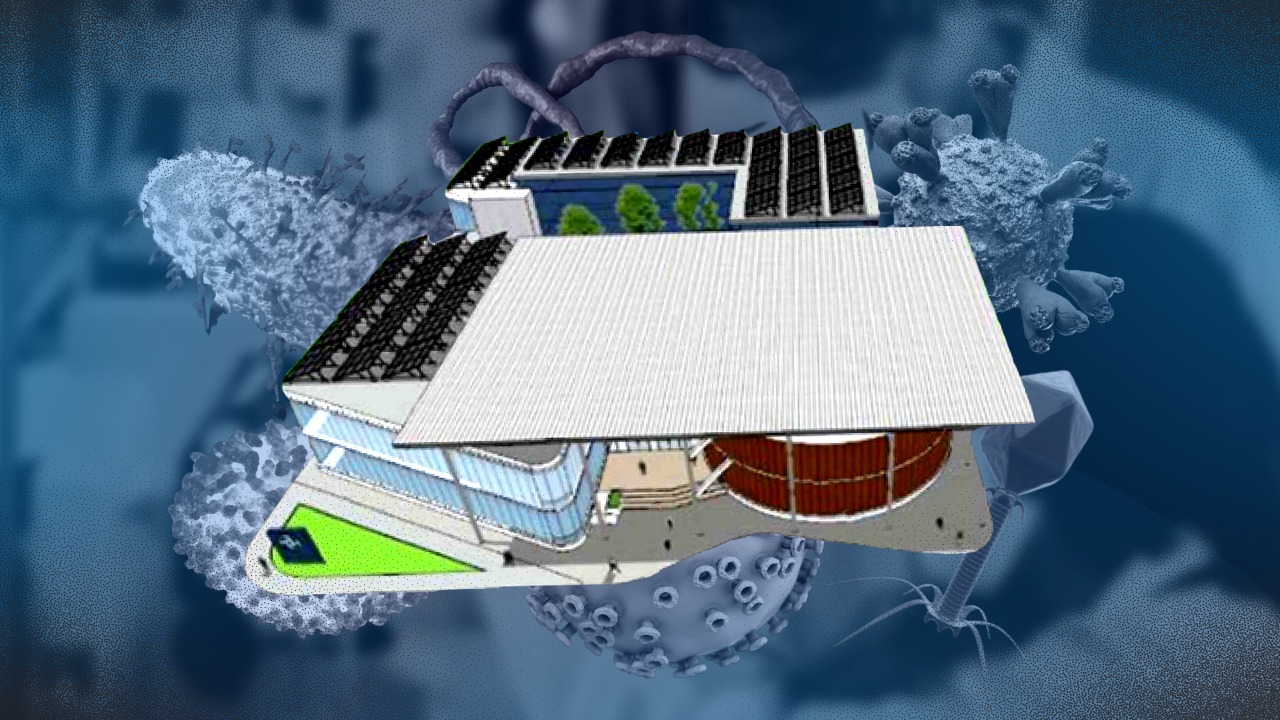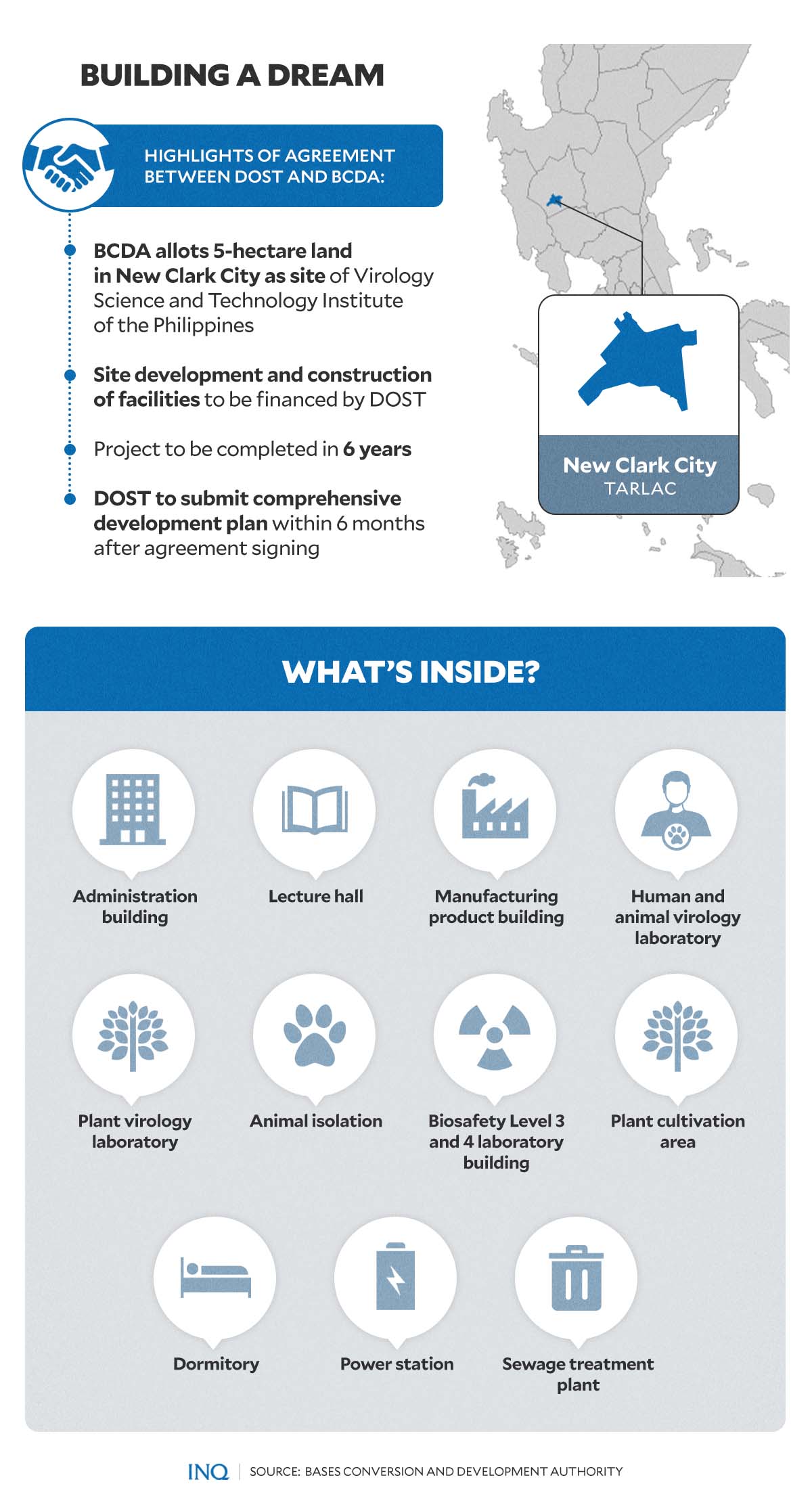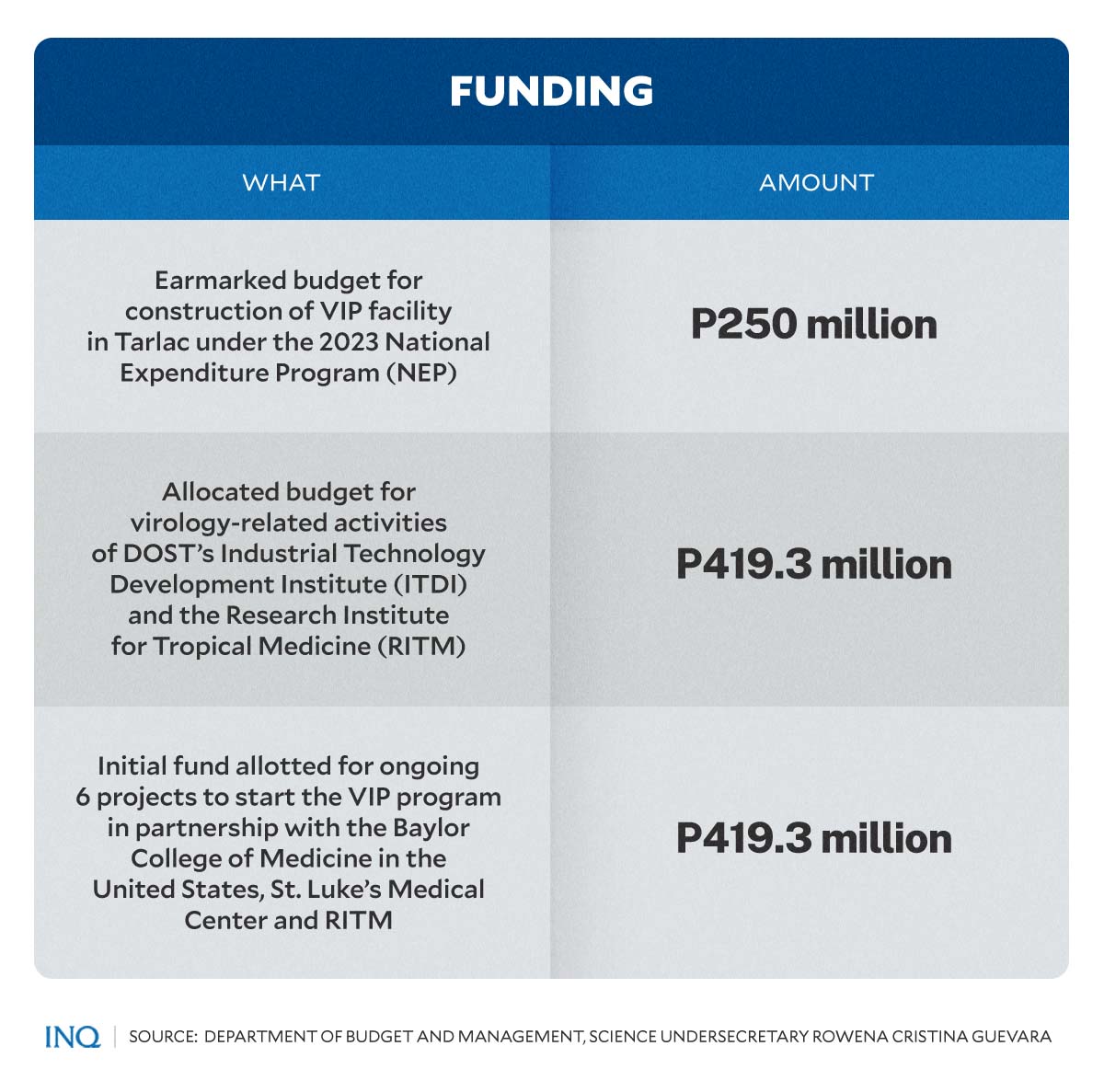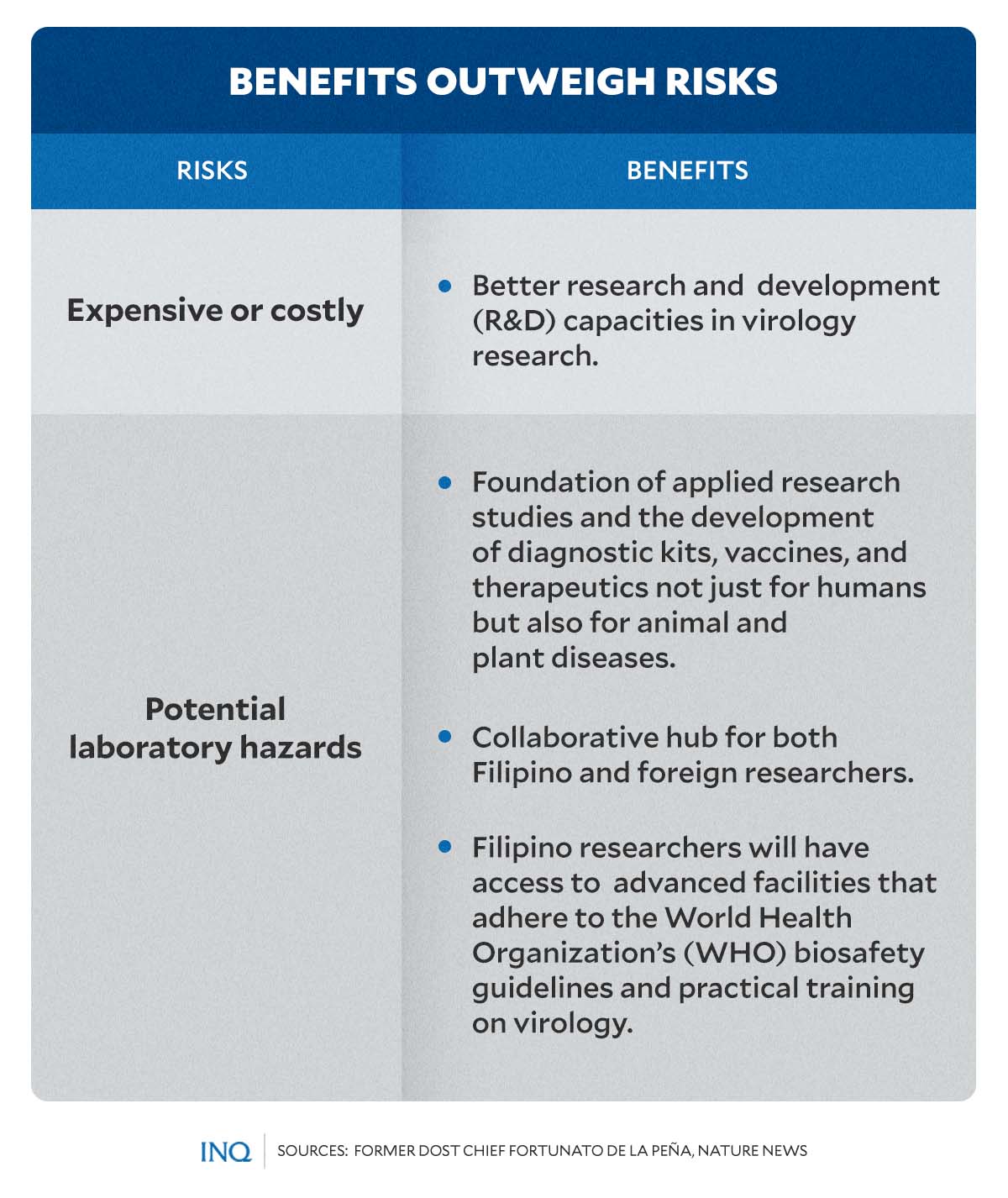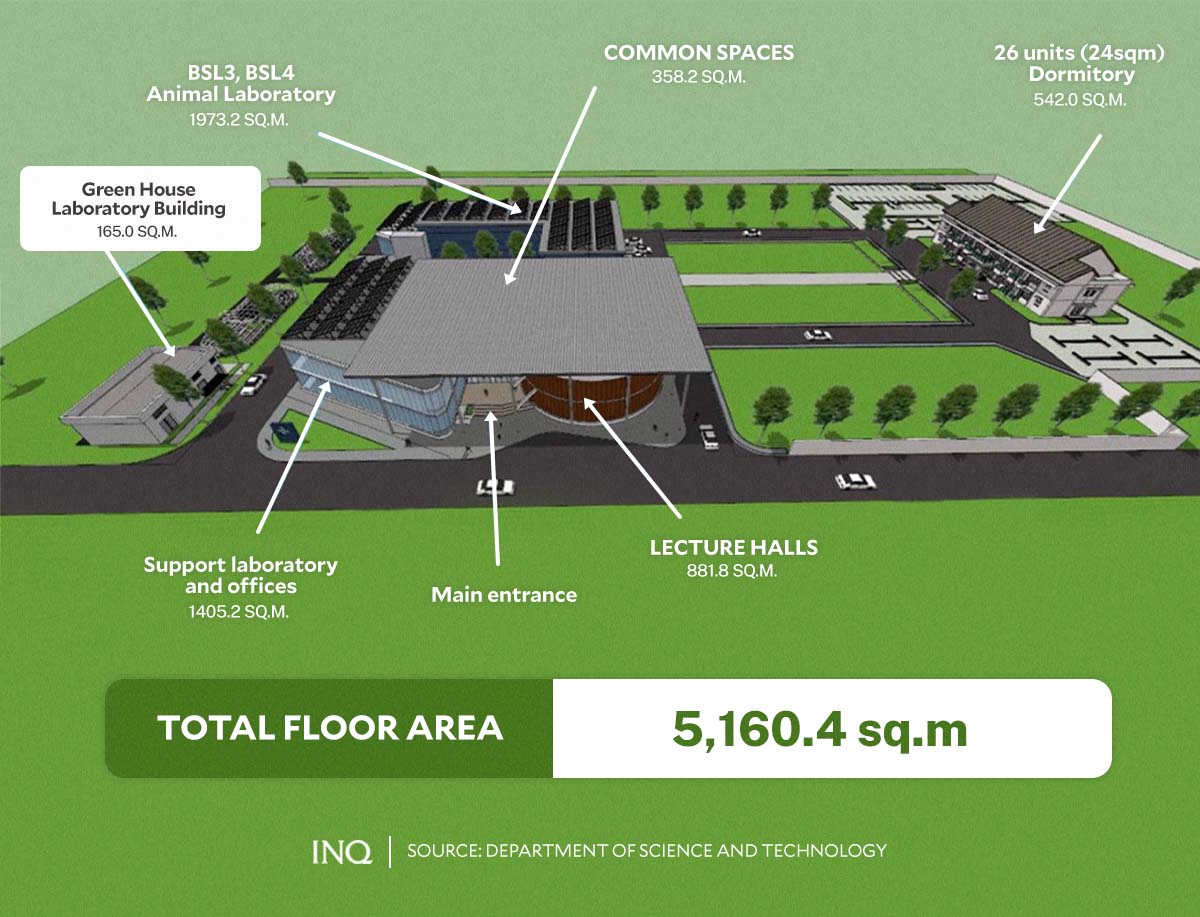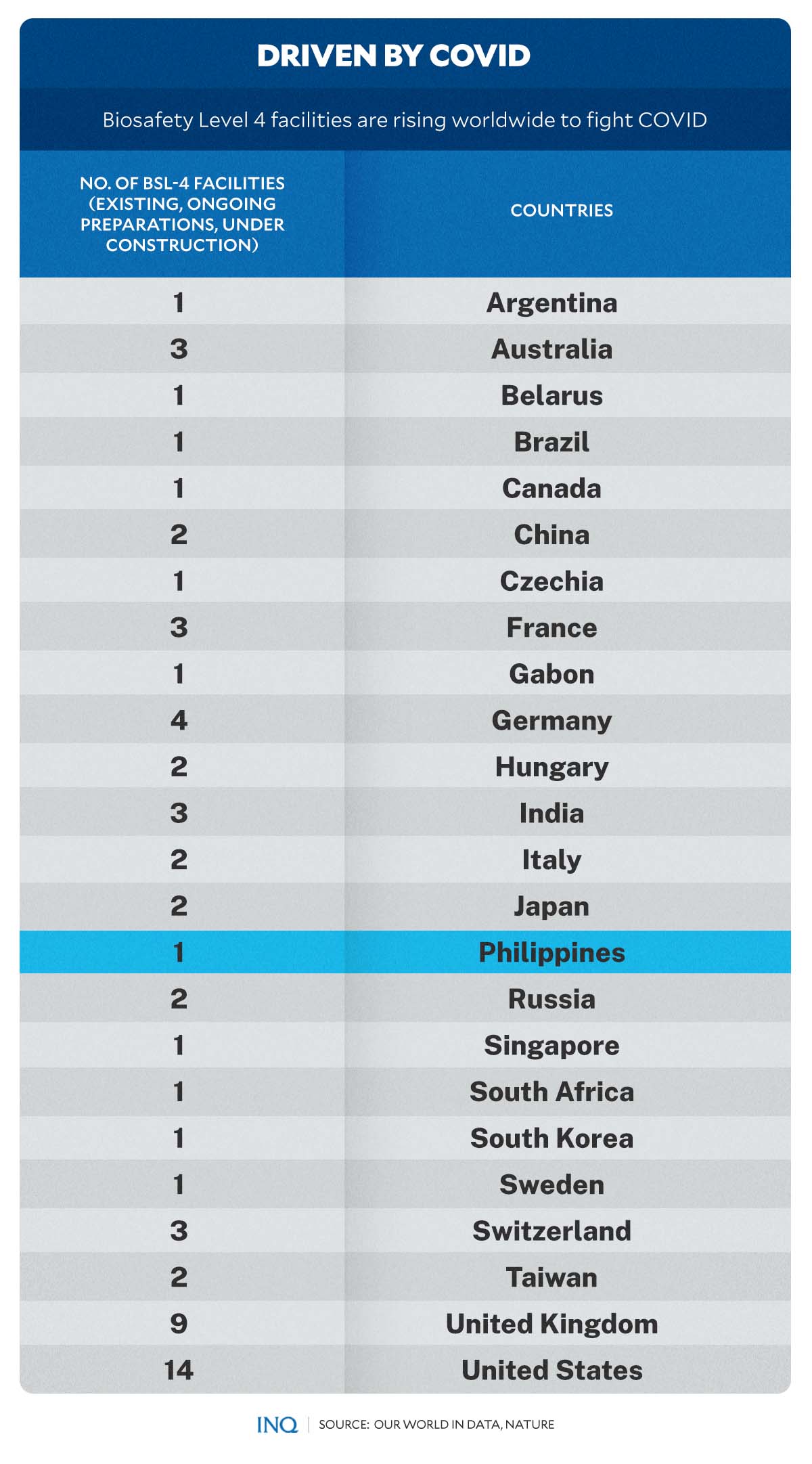Focus on benefits, manage expectations of PH virology institute
(Second of two parts)
MANILA, Philippines—While foreign scientists see possible risks in the proposed Virology and Vaccine Institute of the Philippines, local scientists and supporters of the law, which would give rise to the facility, were urged to communicate better and emphasize the benefits of having a virology research institute in the country.
As the country awaits the passage of the measure proposing the creation of the Philippine Virology Science and Technology Institute (PVSTI)—also called the Virology Institute of the Philippines (VIP)—foreign researchers and scientists pointed out several risks and concerns in constructing the institute, which will house new biosafety-level-3 (BSL-3) and BSL-4 facilities.
According to the US Department of Health & Human Services, Biosafety Levels (BSLs) “are designations applied to projects or activities conducted in laboratories in ascending order of containment based on the degree of the health-related risk associated with the work being conducted.”
BSL-3 laboratories are used to study infectious agents or toxins that may be transmitted through the air and cause potentially lethal infections.
Article continues after this advertisementBSL-4 laboratories are designated for the study of “infectious agents or toxins that pose a high risk of aerosol-transmitted laboratory infections and life-threatening disease for which no vaccines or therapies are available.”
Article continues after this advertisementREAD: PH virology institute: What to know
In an article published in the peer-reviewed scientific journal Nature, virologists and biosecurity researchers detailed the risks of having high-biosafety level laboratories.
Some expressed concerns about the high cost of maintaining the laboratories, while others highlighted the possibility of hazardous accidents—even the “possibility of creating pathogens that are more dangerous or of microorganisms escaping” as part of high-risk experiments carried out in the said facilities.
However, Kim Sales, board member of the nonprofit organization Alliance for Improving Health Outcomes (AIHO), clarified that these risks are simply unavoidable.
“The risks that they’re saying, that’s always there. It’s always a possibility,” she told INQUIRER.net.
“There is always a risk. You are handling agents that can carry diseases,” she added, stressing that “if done right,” the benefits of having the Philippines’ own virology research institute could outweigh the risks.
Still, to properly address the risks and concerns of foreign experts cited in the Nature article, Sales said the benefits should be communicated better with the public to prevent causing unnecessary panic.
Counter ‘negative bias’
“There are risks, and it’s always there, but what needs to be communicated better is how the building of these research facilities and virology institute can benefit the community or the families, individuals, and the nation,” Sales, who researches health policy and health systems, explained.
She added that the Department of Science and Technology (DOST)—which will handle and lead the VIP as an attached agency—along with researchers and supporters of the bill, should be more vocal about the institute’s benefits.
“I think there is a tendency to have a negative bias about it, so I think the champions of this kind of initiative, and I’m sure DOST especially, need to work more to counter those,” Sales urged.
“I feel like the researchers who will benefit from this or the government agencies who are strong supporters of this need to communicate better the benefits rather than the risks,” she continued.
On several and separate occasions, past and current officials of the DOST have explained how the Philippines could benefit from having its own virology and vaccine institute.
“The DOST initiated the establishment of the VIP to have the necessary capability in conducting research to combat novel, emerging, and re-emerging viral diseases,” former Science & Technology Secretary Fortunato de la Peña had said.
He added that the institute will serve as the country’s foundation for research and innovation on human, animal, and plant viruses in the next 10 to 15 years.
Current DOST chief Renato Solidum said that the virology and vaccine institute “would not only focus on viruses that will affect human health but also animals and plants.”
“This is not simply on human health so that we can develop vaccines, diagnostics, therapeutics, medical procedures, among others,” said Solidum.
Among the benefits of the VIP highlighted by the DOST were:
- It will lead to better research and development (R&D) capacities in virology research.
- The institute will serve as the foundation of applied research studies and the development of diagnostic kits, vaccines, and therapeutics not just for humans but also for animal and plant diseases.
- It will be a collaborative hub for both Filipino and foreign researchers.
- Filipino researchers will have access to cutting-edge facilities that adhere to the World Health Organization’s (WHO) biosafety guidelines.
- Filipino researchers will also be given practical training on virology.
READ: PH virology, vaccine institute: Benefits outweigh risks
Last August, President Ferdinand Marcos Jr. pushed for the establishment of the country’s own virology institute and Center for Disease Control and Prevention.
“I have presented to Congress, both houses of Congress, the proposed creation of the Virology Center of the Philippines… so that we can consolidate in a better way all of the disparate research, all the different sources of knowledge, all the different sources of research and new data,” Marcos said.
READ: Bongbong Marcos makes another push for PH virology center, Center for Disease Control
In his first State of the Nation Address (SONA), Marcos vowed to create the Philippines’ own vaccine institute.
READ: Bongbong Marcos vows to establish PH CDC, vaccine institute
Several lawmakers have also declared support for the establishment of the country’s virology institute and urged to pass the pending measure.
READ: Congress to pass Medical Reserve Corps, mandatory ROTC bills this year
READ: Creation of virology, vaccine institute in PH ‘crucial’ for PH
“That’s my suggestion, communicate better to the general public [the] benefits of having these laboratories, even the long-term benefits. [J]ust make an effort because I think it is easier to spread information that is negatively biased [like how it’s] expensive [or how these facilities] pose risk [to the] population,” Sales stressed.
“But what the general public doesn’t understand is that even clinical laboratories pose risks to the population. That’s the kind of biosafety awareness that we need to improve on, the communication about that,” she added.
Manage expectations
Sales also advised the public to manage expectations about the vaccine and virology institute.
“I think it has a lot of potential but again, it will take a lot of investment and probably some time. We manage our expectations on what it can achieve at the moment,” she said.
“I think we are taking it step by step, and I think the next step for [the institute] is to lay out, for example, in the next 10 or 20 years, what they want to achieve,” she added.
According to the DOST, the facility may soon rise at the New Clark Economic Zone in Capas, Tarlac, by the end of 2023 or in 2024
While the bill for the operation of the PVSTI or VIP is still pending in Congress, the DOST has already initiated six research and development works for the VIP program in partnership with the Baylor College of Medicine in the United States, St. Luke’s Medical Center, and Research Institute for Tropical Medicine.
READ: PH’s Virology Institute to rise in end-2023 or in 2024 — DOST
TSB
For more news about the novel coronavirus click here.
What you need to know about Coronavirus.
For more information on COVID-19, call the DOH Hotline: (02) 86517800 local 1149/1150.
The Inquirer Foundation supports our healthcare frontliners and is still accepting cash donations to be deposited at Banco de Oro (BDO) current account #007960018860 or donate through PayMaya using this link.
